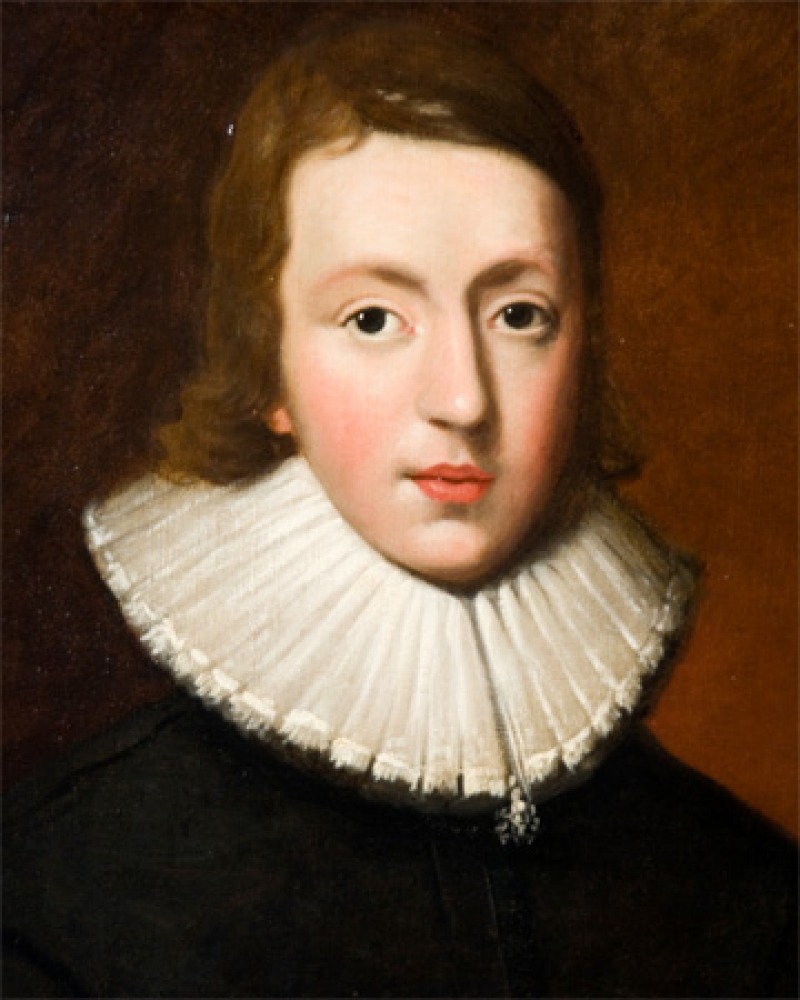“Three poets, in three distant ages born,
Greece, Italy, and England did adorn.
The first in loftiness of thought surpassed;
The next in majesty; in both, the last.
The force of nature could no further go;
To make a third, She joined the former two”.
John Dryden
In one’s attempt to identify the three poets of whom Dryden speaks, a man possessed of only the most meager and imperfect education will suffer no real difficulty. The Greek, of course, is Homer; the Italian, Virgil; and the Englishman, in whose towering shadow Dryden—along with all other British writers—respectfully stood, the great John Milton.
With the sightless bard of Greece, by whom the fall of Ilium was recounted, and the adventures of Odysseus sung, Milton shared the affliction of blindness. It’s hard, almost impossible, to believe that two of our species’ greatest thinkers were deprived of this most vital sense—the unveiling faculty of sight. The one eyeless in Ionia, the other in London, neither Homer nor Milton allowed his darkening blight to interrupt his life’s mission. Neither allowed his blindness to cloud the inner, radiant light with which his fiery soul and literary brilliance was at all times aglow.
Between the Roman pagan, Virgil, and the English Puritan, Milton, fewer similarities, at first glance, suggest themselves. The former enjoyed the patronage of a newly-minted monarch—a man whose regal name, Augustus, was not merely a reference to, but a very synonym for greatness. Known in his youth as Octavian, upon reaching adulthood, Augustus became the adopted son and heir of Julius Caesar. It was to Augusts that the young, turbulent, acquisitive empire of Rome was bequeathed. Virgil, a young man at the time, suffered no disquiet over the recent fall of the Republic, and, in its wake, the lifetime appointments of Caesar and his grand-nephew, Augustus. Of the former’s brazen coup, Virgil was an enthusiastic supporter, while he basked in the profits of the latter’s royal boon.
Milton, on the contrary, watched not the ascent, but the bloody dethronement of a wayward, probably Catholic king. As a vocal champion of the Parliamentarian cause, he played an active role in the establishment of the first, albeit short-lived republic in England—a daring interregnum in which he was forever honored to have participated. Unlike Virgil, Milton was no royalist; he’d rather leap into his own grave and blanket himself with dirt than live beneath the burdensome weight of a monarch’s heavy yoke. And so, with the end of Cromwell, and the Restoration of Charles II, Milton fled society. He sought the seclusion of a country estate at which he lived as an outcast—as a man only partially alive in the eyes of the state.
In the opinion of Dryden, with which all mankind is in vociferous agreement, these are the poets par excellence: Homer, Virgil, and John Milton. Dante cannot but lament his exclusion from so exalted a list. Wordsworth, Coleridge, and Keats react just the same. Indeed, the Florentine occupies an elevated, almost sublime place in the literary history of man, but his perch is at a slightly lower ledge. The Romantics, self-aware if nothing else, suffer no embarrassment, as they know themselves to reside still further down the scale. Of the three greats, however, one is to be deemed the best of all. John Milton, in the judgment of the same poet by whom Virgil was carefully translated and Homer fiercely loved, is primus inter pares—first among immortal equals.
In choosing Milton as the best, one might accuse Dryden of having been motivated by feelings of national prejudice or local affection, when, in deciding upon such literary matters, purely aesthetic standards ought to have been applied. It should be noted that, while they were countrymen living at the same time, and working in the same profession, they were far from friends. Dryden was a ring-kissing, High Church loyalist; Milton, to reiterate, was a Puritan supporter of Cromwell. The one applauded the papacy and eagerly awaited the return of the Catholic king; the other spurned the Vatican and cursed the very thought of a Jacobite Restoration. That’s to say, politically, the two were antipodal.
This leads one to conclude that Dryden’s measure of Milton was less partial than originally thought. Indeed, we might confidently trust in the objectivity of his daring pronouncement.
Milton, in whom, according to Dryden, both Virgil and Homer were so seamlessly joined, was born in 1608. His parentage was less divine than Dryden might have you believe, but—as was soon evident to all—Nature certainly did confer upon him the gift of genius at a very young age. The poetry of his youth is marvelous; that of his adolescence and early adulthood, gripping. The polemics of his more mature years are unparalleled, and his stately arguments in favor of free speech, education, and the right to divorce one’s spouse are still forwarded by classical liberals today.
His greatest work, though, and that by which the canon of English literature is sublimely crowned, was written at the twilight of his life. The Protectorate had ended, the fiery calls for regicide had extinguished, the radicals had moderated, the state had backslid, and Charles II was, in grand and ceremonious fashion, triumphantly restored. Milton suddenly found himself a criminal in his own home. His republican ardor had exhausted itself, his biting polemics had provoked too many for too long, and he was forced to abandon his station, or risk his life.
Long ago he’d set his mind upon writing a national epic, the likes to which Homer, from the heights of the Acropolis at Athens, and Virgil, from the Capitoline at Rome, might approvingly nod their heads and tip their hats. He made a list of possible subjects to which he might devote his pen. Of all the fabulous candidates before him, two stood out: the legend of King Arthur, and that of Adam’s fall in the Garden of Eden.
After long hours of deliberation, and a stroke of piety that bordered on the Damascene, he opted to pursue the second: the fall of Adam was to be the theme of his epic.
He began the daunting project in 1658, at which time he was completely deprived of his vision. For its writing, he relied on his poor daughter, an un-consenting amanuensis whom he severely maltreated. In unpredictable bursts of genius, he would shower her with forty lines in a single breath. Then, in the subsequent moments of calm, these eruptions of eloquence would be read back to him in a steady, subdued tone of voice. Detained by a minute’s reflection, Milton would then proceed to explode yet again, this time to edit or embellish the lines as he saw fit. Thus, the storm of brilliance raged like a hurricane at sea. He remained faithful, all the while, to the constraints of blank verse and iambic pentameter, the classicist’s beloved meter from which all silly rhymes and cumbersome couplets were barred.
The result, completed in 1665, was 10,558 vigorous lines streaming across the picturesque terrain of twelve mountainous books. I read to you, now, an excerpt from Book IV, my personal favorite of the dozen. It reveals to us the latent humanity in Satan, and the painful ambivalence by which his soul was daily pierced. It shows the internal sufferings by which the arch apostate was tormented, and the impossibility of his wish for things to have been different from the way they were. It also introduces to the reader, for the first time, Adam and Eve—esteemed father and mother of our sinful race. We greet them, in all their purity and loveliness, as they appear in their prelapsarian state, that spotless epoch before their fateful tasting of the fruit hung about the prohibited tree.
I hope that you enjoy.

